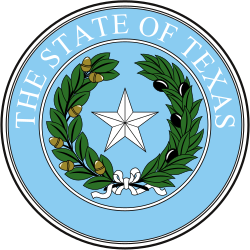| ||||||||||||||||||||||||||||
15 of the 31 seats in the Texas Senate 16 seats needed for a majority | ||||||||||||||||||||||||||||
|---|---|---|---|---|---|---|---|---|---|---|---|---|---|---|---|---|---|---|---|---|---|---|---|---|---|---|---|---|
| ||||||||||||||||||||||||||||
 Senate results by district Republican hold Democratic hold No election | ||||||||||||||||||||||||||||
| ||||||||||||||||||||||||||||
| Elections in Texas |
|---|
 |
The 2000 Texas Senate elections took place as part of the biennial United States elections. Texas voters elected state senators in 15 State Senate districts. All of the seats up for this election were for two-year terms, with senators up for re-election in the 2002 elections. State senators typically serve four-year terms in the Texas State Senate, but all Senators come up for election in the cycles following each decennial redistricting. The winners of this election served in the 77th Texas Legislature.